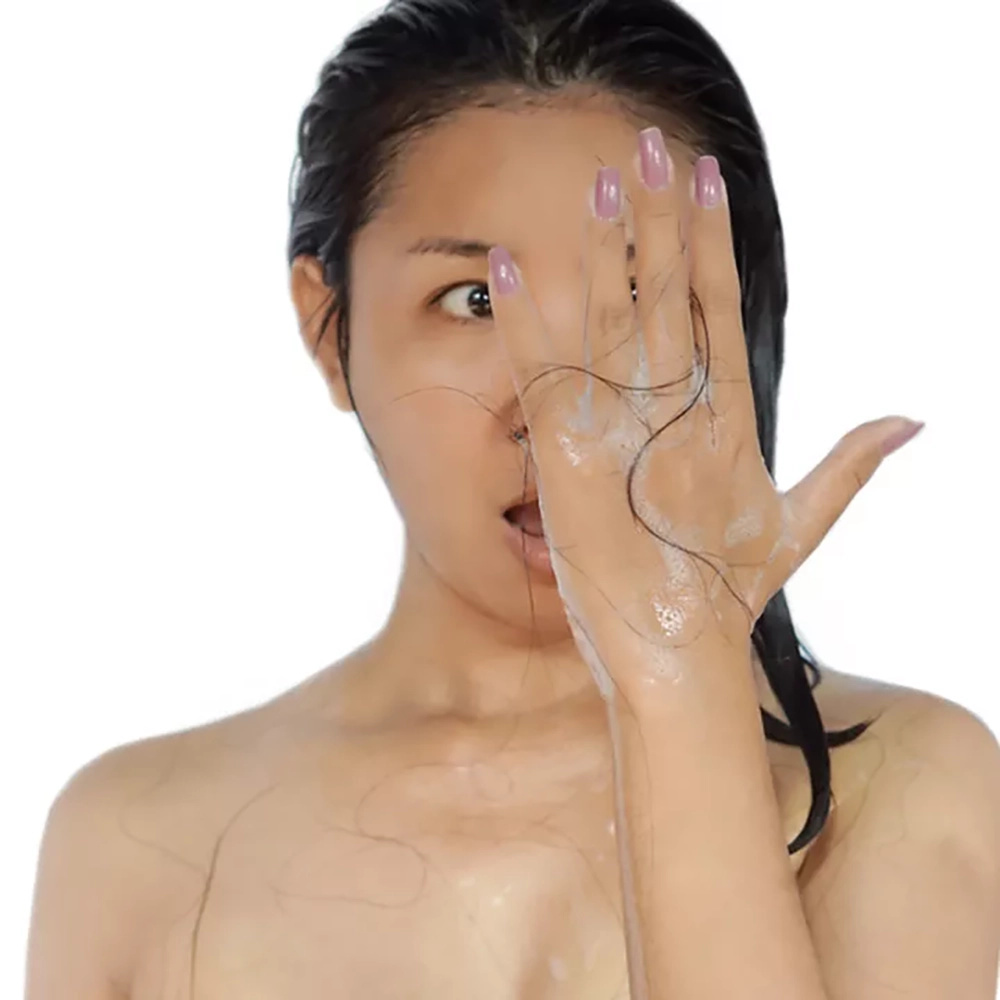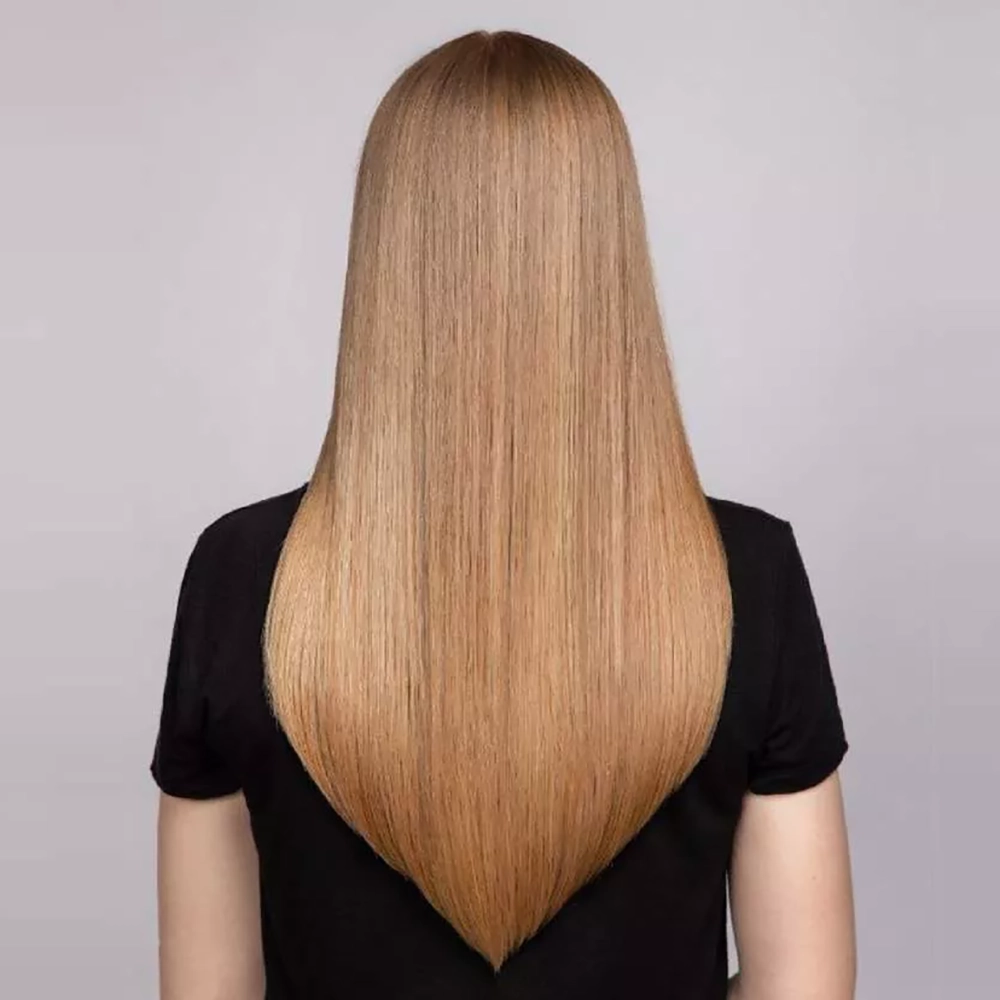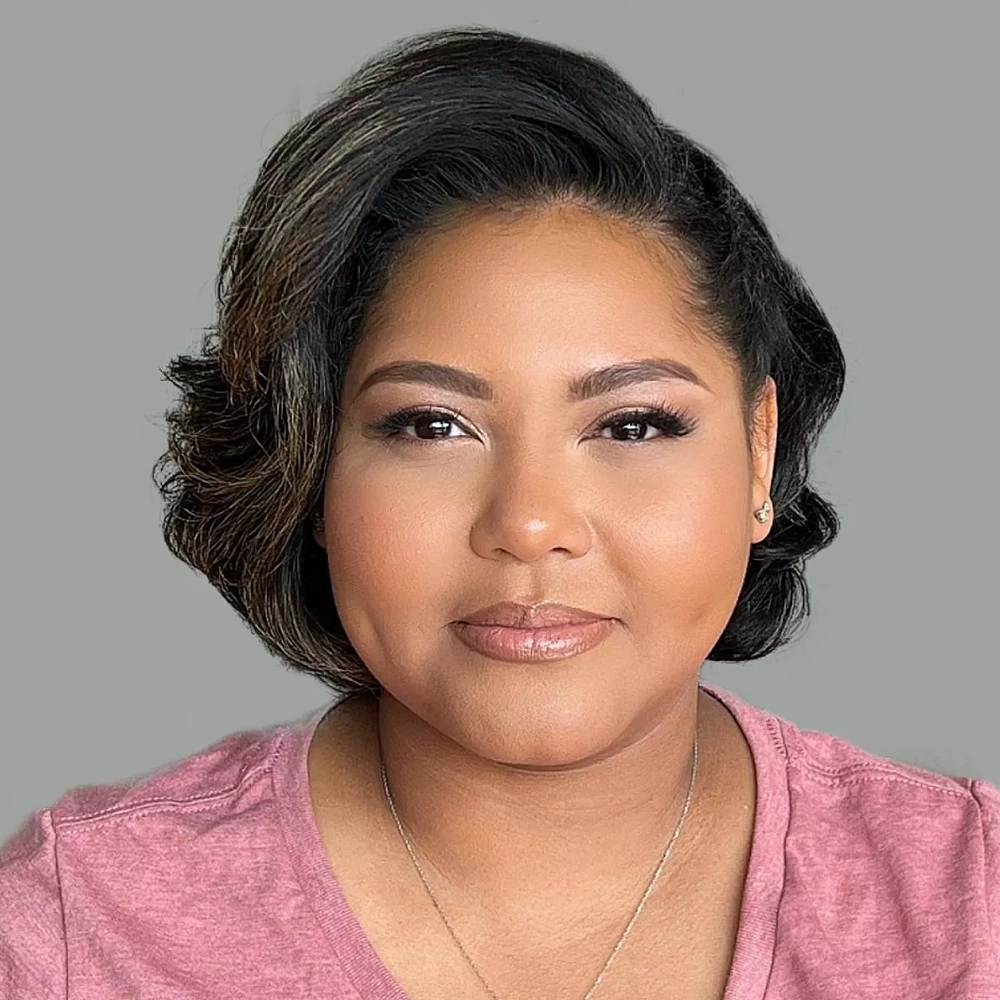Understanding Hair Loss
Understanding hair loss is a crucial step in finding ways to prevent and treat it. Hair loss, also known as alopecia, can occur in both men and women and can be caused by a variety of factors. It is estimated that approximately 50 million men and 30 million women in the United States alone experience some form of hair loss. While it is a common condition, it can have significant emotional and psychological impacts on individuals. In this blog post, we will explore the different types of hair loss, its causes, and available treatment options.
Types of Hair Loss:
There are several different types of hair loss, each with its own distinct characteristics and causes. The most common type is androgenetic alopecia, also known as male or female pattern baldness. This type of hair loss is hereditary and typically occurs gradually over time. Other types include alopecia areata, which causes patches of hair loss on the scalp or other areas of the body, and telogen effluvium, which is characterized by temporary hair shedding due to physical or emotional stress.
Causes of Hair Loss:
There are various factors that can contribute to hair loss. These include genetics, hormonal changes, certain medical conditions, medications, and lifestyle factors. Genetics play a significant role in androgenetic alopecia, as individuals with a family history of hair loss are more likely to be affected. Hormonal changes, such as those that occur during pregnancy or menopause, can also lead to temporary or permanent hair loss. Medical conditions like thyroid disorders, autoimmune diseases, and scalp infections can also cause hair loss.
Treatment Options:
When it comes to treating hair loss, it is important to address the underlying cause. For individuals with androgenetic alopecia, over-the-counter and prescription medications, such as minoxidil and finasteride, may help slow down hair loss and promote regrowth. In cases of alopecia areata, corticosteroid injections or topical creams may be prescribed. Lifestyle changes, such as reducing stress levels, eating a balanced diet, and avoiding harsh hair treatments, can also help improve hair health. In some cases, seeking professional help from a dermatologist or hair restoration specialist may be necessary to explore advanced treatment options like hair transplant surgery.
Common Causes of Hair Loss
Hair loss is a common concern for both men and women. It can have a significant impact on self-esteem and overall well-being. Understanding the common causes behind hair loss is crucial in finding effective solutions to address this issue.
One of the primary factors contributing to hair loss is genetics. Inheriting certain genes can make individuals more prone to hair thinning and baldness. This type of hair loss, known as male or female pattern baldness, typically occurs gradually over time.
Another common cause of hair loss is hormonal changes. Imbalances in hormones, such as during pregnancy or menopause, can lead to temporary hair loss. This is often reversible once hormone levels stabilize.
| Common Causes of Hair Loss | Effect | Solution |
|---|---|---|
| Genetics | Gradual hair thinning and baldness | Hair transplant, medication, or concealment techniques |
| Hormonal changes | Temporary hair loss | Hormone stabilization and appropriate hair care |
| Stress and emotional factors | Excessive shedding and thinning | Stress management, therapy, and self-care practices |
Stress and emotional factors can also contribute to hair loss. High levels of stress can trigger a condition called telogen effluvium, causing excessive shedding and thinning of hair. Emotional trauma or significant life events can further exacerbate this type of hair loss.
Other factors that may play a role in hair loss include poor nutrition, certain medications, and medical conditions. Nutritional deficiencies, especially those lacking iron, zinc, and biotin, can weaken the hair follicles and lead to hair loss. Medications for conditions like cancer, thyroid disorders, and autoimmune diseases can also have hair loss as a side effect. Additionally, medical conditions such as alopecia areata and scalp infections can contribute to hair loss.
In conclusion, hair loss can have various causes, and identifying the underlying factors is crucial in addressing the issue effectively. Whether it’s genetics, hormonal changes, stress, or other factors, seeking professional help and adopting a holistic approach can help individuals regain their confidence and achieve healthier hair.
Lifestyle Factors and Hair Loss
When it comes to hair loss, many people assume that genetics and aging are the only culprits. However, there are several lifestyle factors that can contribute to hair loss as well. It’s important to understand the impact that our daily habits and routines can have on the health of our hair.
Poor nutrition: Diet plays a crucial role in maintaining healthy hair. Our strands require essential nutrients, such as vitamins, minerals, and proteins, to grow and stay strong. Skipping meals, restricting calories, or following fad diets can lead to a deficiency in these vital nutrients, which can ultimately result in hair loss.
Stress: We all experience stress at some point in our lives, but chronic stress can take a toll on our overall health, including our hair. When we are under a great deal of stress, our bodies produce more cortisol, a hormone that can disrupt the natural hair growth cycle. This can lead to increased hair shedding and thinning.
Excessive heat and styling: Constantly subjecting our hair to heat styling tools, such as blow dryers, curling irons, and straighteners, can cause damage to the hair shaft, leading to breakage and hair loss. Additionally, tight hairstyles, such as ponytails and braids, can put unnecessary tension on the hair follicles, leading to traction alopecia.
List of common lifestyle factors that can contribute to hair loss:
| Poor nutrition | Lack of essential nutrients |
| Stress | Increased cortisol production |
| Excessive heat and styling | Damage to hair shaft |
While these lifestyle factors can contribute to hair loss, it’s important to remember that they are not the sole cause. Other factors, such as genetics, underlying medical conditions, and hormone imbalances, can also play a role. If you are experiencing significant hair loss or are concerned about the health of your hair, it’s always best to seek professional help.
The Impact of Diet on Hair Health
Diet plays a crucial role in maintaining overall health, and it is no exception when it comes to the health of our hair. The food we consume provides essential nutrients that support hair growth, strength, and overall hair health. A balanced diet that includes all the necessary nutrients can help prevent hair loss, promote hair growth, and ensure that our hair remains strong and shiny.
One of the key nutrients for healthy hair is protein. Our hair is primarily made up of a protein called keratin. Consuming enough protein in our diet ensures that our hair follicles have enough building blocks to produce strong and healthy hair strands. Good sources of protein for hair health include lean meats, fish, eggs, and dairy products.
In addition to protein, vitamins and minerals also play a vital role in maintaining hair health. Vitamin A contributes to the production of sebum, a natural oil that keeps our scalp moisturized and helps prevent hair from becoming dry and brittle. Foods rich in vitamin A include carrots, sweet potatoes, spinach, and kale. Vitamin C and E are antioxidants that help protect hair follicles from damage caused by free radicals. Citrus fruits, berries, avocados, and nuts are excellent sources of these vitamins.
When it comes to minerals, iron is particularly important for hair health. Iron helps in the production of red blood cells, which carry oxygen to the hair follicles. Insufficient iron levels can lead to hair loss and thinning. Foods that are rich in iron include red meat, leafy greens, beans, and lentils.
- Protein: lean meats, fish, eggs, dairy products
- Vitamin A: carrots, sweet potatoes, spinach, kale
- Vitamin C and E: citrus fruits, berries, avocados, nuts
- Iron: red meat, leafy greens, beans, lentils
| Essential Nutrient | Food Sources |
|---|---|
| Protein | Lean meats, fish, eggs, dairy products |
| Vitamin A | Carrots, sweet potatoes, spinach, kale |
| Vitamin C and E | Citrus fruits, berries, avocados, nuts |
| Iron | Red meat, leafy greens, beans, lentils |
In conclusion, the impact of diet on hair health cannot be underestimated. A balanced diet that includes sufficient amounts of protein, vitamins, and minerals is crucial for maintaining strong, vibrant, and healthy hair. By incorporating the right foods into our daily meals, we can promote hair growth, prevent hair loss, and ensure that our hair remains at its best. Remember, healthy hair starts from within!
Hair Care Habits and Hair Loss
When it comes to maintaining healthy hair, our hair care habits play a significant role. The way we treat our hair on a daily basis can have a direct impact on its health and strength, and unfortunately, poor hair care habits can lead to hair loss. It is essential to understand the potential consequences of our actions and make necessary changes to our hair care routine to prevent or minimize hair loss.
One common hair care habit that can contribute to hair loss is excessive heat styling. Regular use of heat styling tools such as straighteners, curling irons, and blow dryers can damage the hair shaft, leading to dryness, breakage, and even hair loss. It is important to use these tools sparingly and always apply a heat protectant product to minimize the damage caused by high temperatures.
In addition to heat styling, harsh brushing and combing can also result in hair loss. Roughly brushing or combing wet hair, using a brush with sharp bristles, or pulling on the hair forcefully can cause it to become weak and prone to breakage. It is advisable to use a wide-toothed comb or a brush specifically designed for detangling wet hair to prevent unnecessary damage.
- Limit the use of heat styling tools and always use a heat protectant.
- Be gentle when brushing or combing wet hair to avoid breakage.
- Avoid tight hairstyles that pull on the hair follicles, such as ponytails or braids.
- Protect your hair from UV rays by wearing a hat or using hair products with built-in sun protection.
In addition to these habits, using harsh chemical treatments or frequent colorings can also weaken the hair and contribute to hair loss. Chemical treatments like perming or relaxing can damage the hair shaft, while frequent hair dyeing can lead to hair thinning and breakage. If you must use chemical treatments or color your hair, it is essential to follow proper precautions and ensure you are using products that are gentle and suitable for your hair type.
In conclusion, our hair care habits have a significant impact on the health and strength of our hair. Poor hair care practices, such as excessive heat styling, aggressive brushing or combing, and harsh chemical treatments, can contribute to hair loss. It is crucial to adopt healthy hair care habits, such as limiting heat styling, using gentle brushing techniques, and being cautious with chemical treatments, to maintain the integrity of our hair and prevent unnecessary hair loss.
| Common Hair Care Habits that can Cause Hair Loss |
|---|
| Excessive heat styling |
| Harsh brushing or combing |
| Tight hairstyles |
| Overuse of chemical treatments or frequent colorings |
Medical Conditions and Hair Loss
Medical conditions can have a significant impact on hair health, leading to hair loss or thinning. Certain illnesses and conditions can disrupt the natural hair growth cycle, resulting in excessive shedding or a decrease in hair volume. Understanding these medical conditions and their effects on hair can help individuals address the issue and seek appropriate treatment. This blog post will explore some common medical conditions that can contribute to hair loss and provide insights into managing this concern.
1. Alopecia Areata: Alopecia areata is an autoimmune condition in which the immune system mistakenly attacks hair follicles, leading to hair loss. This condition often causes smooth, round patches on the scalp, but it can also affect other areas of the body. While the exact cause of alopecia areata is unknown, genetics and environmental factors may play a role. Treatment options for this condition include corticosteroid injections, topical medications, and immunotherapy.
2. Thyroid Disorders: Thyroid disorders, such as hypothyroidism and hyperthyroidism, can disrupt the balance of hormones in the body, including those that regulate hair growth. With hypothyroidism, hair may become dry, brittle, and thin, while hyperthyroidism can lead to increased hair shedding. Proper management of these thyroid conditions through medication and lifestyle changes can help minimize hair loss symptoms.
3. Scalp Infections: Certain infections of the scalp, such as ringworm and folliculitis, can cause hair loss. These infections can inflame the hair follicles and interrupt the normal hair growth cycle. Seeking prompt medical attention and undergoing appropriate treatment, such as antifungal medications, can help resolve these scalp infections and prevent further hair loss.
Table: Common Medical Conditions and Their Impact on Hair Loss
| Medical Condition | Impact on Hair Loss |
|---|---|
| Alopecia Areata | Causes patchy hair loss due to autoimmune attack on hair follicles |
| Thyroid Disorders | Can lead to dry, brittle hair or increased hair shedding |
| Scalp Infections | Inflammation of hair follicles can result in hair loss |
In conclusion, various medical conditions can contribute to hair loss or hair thinning. Understanding the underlying cause of hair loss is crucial for appropriate treatment and management. If you are experiencing excessive hair loss, it is advisable to consult a healthcare professional or a dermatologist specialized in hair disorders. They can help diagnose the root cause of your hair loss and develop a personalized treatment plan to address the specific medical condition affecting your hair health.
Seeking Professional Help for Hair Loss
Seeking professional help for hair loss can be a crucial step towards understanding and addressing this common issue. With so many potential causes of hair loss, it is important to consult with experts who specialize in hair and scalp health. By seeking professional help, you can gain a deeper understanding of the underlying causes and develop an effective treatment plan.
One of the main benefits of seeking professional help is the access to content-rich knowledge and expertise. Hair loss experts have spent years studying and researching hair and scalp conditions. They have in-depth knowledge about the various types of hair loss, the factors that contribute to it, and the most effective treatment options available. Their expertise can provide you with valuable insights and guidance on how to manage and potentially reverse hair loss.
When seeking professional help for hair loss, the first step is to find a reputable specialist or clinic. Look for professionals who are experienced in dealing with hair loss specifically, as they will have a deeper understanding of the condition and its various causes. You can ask for recommendations from your primary care physician, dermatologist, or friends and family who have dealt with similar issues. Additionally, online research and reading patient reviews can help you evaluate the expertise and reputation of potential professionals.
- Consider consulting with a trichologist, a specialist who focuses on the health of the hair and scalp. Trichologists are trained to diagnose and treat various hair and scalp conditions, including hair loss. They can perform detailed assessments and recommend personalized treatment plans based on your specific needs.
- Dermatologists are medical doctors who specialize in skin, hair, and nail health. They can help diagnose the underlying causes of hair loss, such as hormonal imbalances, autoimmune conditions, or scalp infections. Dermatologists may recommend treatments such as medications, topical solutions, or procedures like hair transplantation.
- Hair transplant surgeons specialize in surgical hair restoration. If you have advanced hair loss or are considering hair transplant surgery, consulting with a qualified and experienced hair transplant surgeon is essential. They can assess your suitability for the procedure, explain the process, and provide personalized recommendations.
Seeking professional help for hair loss goes beyond just receiving expert advice. It offers a comprehensive approach to diagnosis and treatment. Professionals will typically conduct detailed evaluations to determine the cause of your hair loss, which may involve physical examinations, laboratory tests, and possibly scalp biopsies. By identifying the root cause, they can tailor treatment plans to address your specific needs and maximize the chances of successful hair regrowth.
| Potential Benefits of Seeking Professional Help: |
|---|
| Access to expert knowledge and expertise |
| Accurate diagnosis of underlying causes |
| Personalized treatment plans |
| Comprehensive approach to hair loss |
| Potential for successful hair regrowth |
Remember, hair loss can have a significant impact on self-esteem and quality of life. Seeking professional help is not just about treating the physical aspects of hair loss; it is also about addressing the emotional and psychological well-being that can be affected. By consulting with professionals specialized in hair loss, you can take the first step towards regaining confidence and finding effective solutions for your hair loss concerns.




































